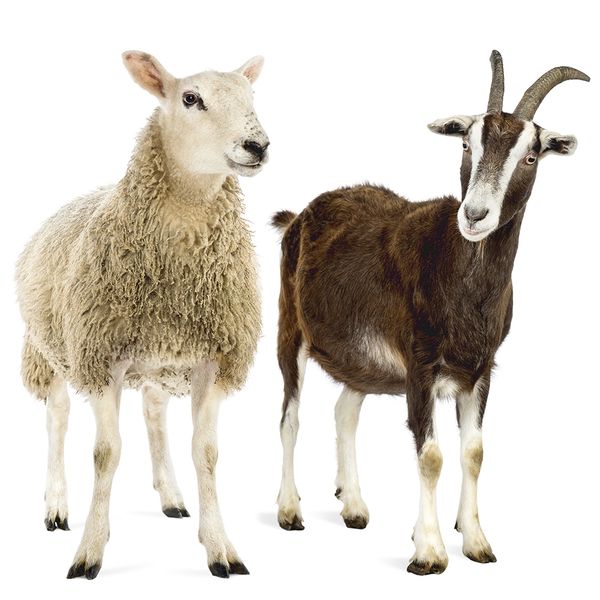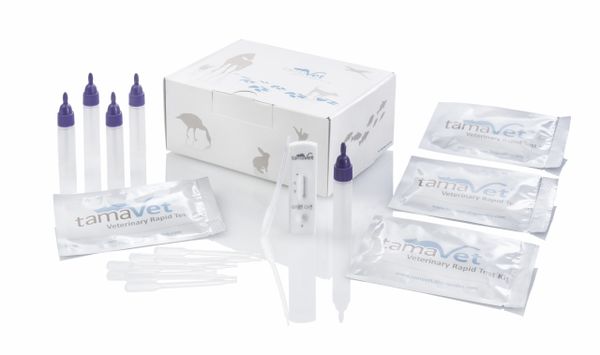
tamaVet® rapid tests for sheep and goats

Multi 2TC Rotavirus, Clostridium perfringens
| Product | Product code | Sample material | Detection |
|---|---|---|---|
| tamaVet® Multi 2TC Test | 1172060N-05 | Faeces | Ag |
The tamaVet® Multi 2TC (Rotavirus, Clostridium perfringens) Test is intended for the rapid detection of specific rotavirus and Clostridium perfringens antigens in faecal samples taken from cattle, sheep, goats, pigs and horses.
Rotavirus belongs to the Reoviridae family and has numerous different serotypes. The infection is generally transmitted via the faecal-oral route. The bacteria Clostridium perfringens belongs to the Clostridiales order and is often found in the digestive tract of healthy animals or is ingested orally.
Disease caused by Clostridium perfringens is associated with increased proliferation in the intestine, with the formation of various toxins. The absorption of these toxins into the blood can lead to enterotoxaemia. The animals exhibit severe and sometimes bloody diarrhoea and are even at risk of potential death resulting from shock. As symptoms resemble those of rotaviruses and mixed infections, this test combination is recommended. The detection of rotavirus antigens is usually possible with the onset on clinical symptoms, as excretion of the virus reaches a peak shortly after the start of the illness and then decreases. The detection of Clostridium perfringens antigens can be used for further clarification.
The test is suitable for the early detection of suspected infection with rotaviruses or in the case of clinical symptoms, as well as for the detection of Clostridium perfringens antigens in cattle, sheep, goats, pigs and horses.
Multi 3TA Rotavirus, Clostridium perfringens, Cryptosporidium parvum
| Product | Product code | Sample material | Detection |
|---|---|---|---|
| tamaVet® Multi 3TA Test | 1172061N-05 | Faeces | Ag |
The tamaVet® Multi 3TA (Rotavirus, Clostridium perfringens, Cryptosporidium parvum) Test is intended for the rapid detection of specific rotavirus, Clostridium perfringens and Cryptosporidium parvum antigens in faecal samples taken from cattle, sheep, goats,pigs and horses.
Rotavirus belongs to the Reoviridae family and has numerous different serotypes. The infection is generally transmitted via the faecal-oral route. The bacteria Clostridium perfringens belongs to the Clostridiales order and is often found in the digestive tract of healthy animals or is ingested orally. The protozoan Cryptosporidium parvum belongs to the phylum Apicomplexa and forms infectious oocysts. The infection is normally transmitted orally.
Diarrhoeal diseases, especially in young animals, are often caused by mixed infections with one or more of these pathogens. The largely similar symptoms they cause, such as apathy, anorexia, diarrhoea, dehydration and fever can lead to large losses in the herd as early as a few hours/days after birth.
The test is suitable for the early detection of suspected infection with rotaviruses, Clostridium perfringens and Cryptosporidium parvum, or in the case of clinical symptoms, in cattle, sheep, goats,pigs and horses. As the excretion of pathogens differs and can be intermittent, the test should be repeated if necessary.